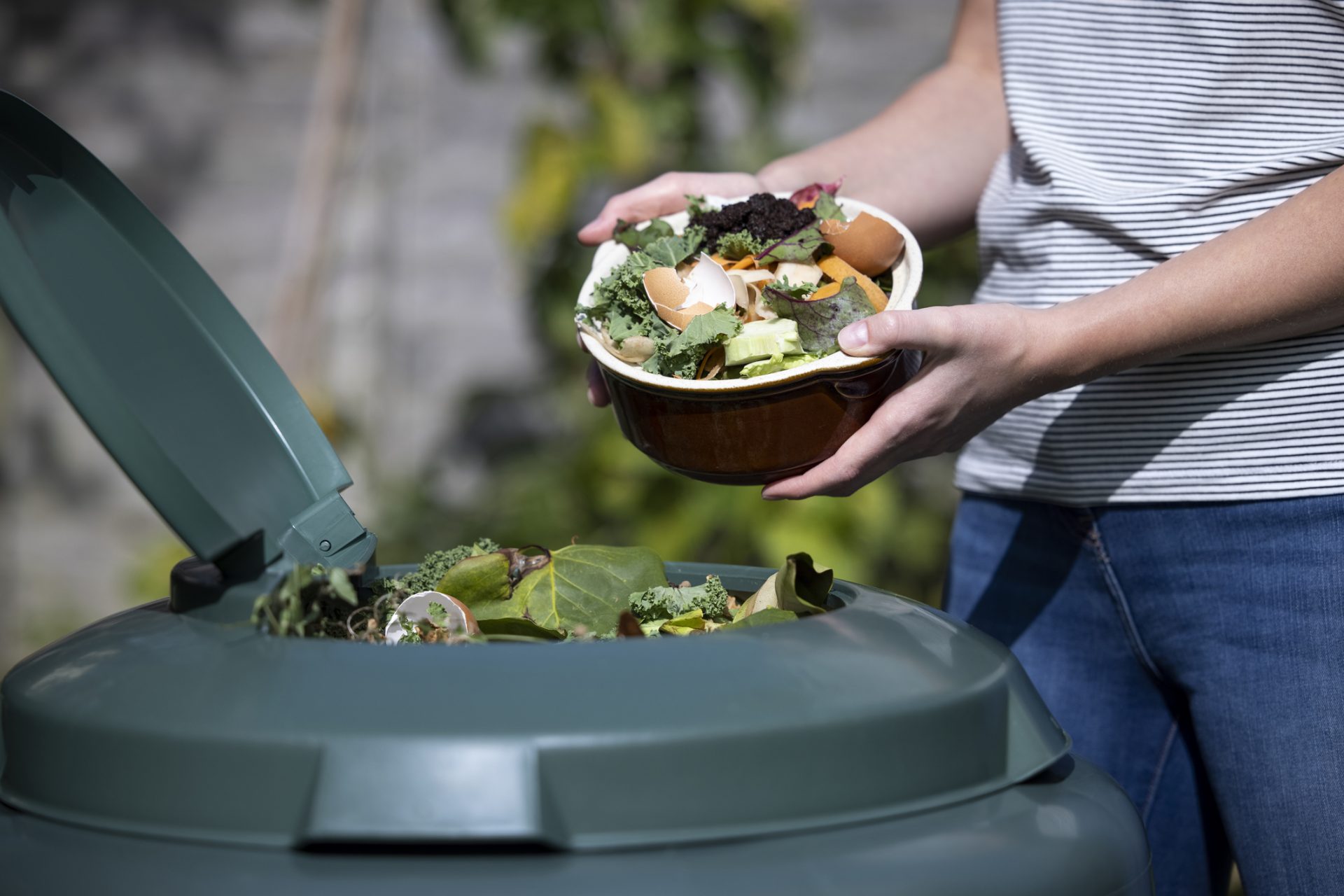
If you’re not knowledgeable about the practice of composting, dive into our composting 101 to learn some composting basics, helpful tips, and what’s compostable.
As we become more environmentally conscious, sustainability practices are becoming more important to our everyday lives than ever before. Across the United States, most cities offer residents the opportunity to live a more efficient, less wasteful lifestyle through recycling and resource conservation programs. Lately, there is an increased interest among the environmentally conscious on living a “zero-waste” life (or as close to it as you can come). Learning how to make compost at home is an important part of a life where nothing is wasted.
Currently, 30% of the garbage we throw away could be composted instead. But, while the rules and processes around recycling are ingrained within the public consciousness for the most part, home composting has yet to be adopted universally. Without proper education on the benefits of composting, what can be composted, and how to use compost, we will make little progress towards a zero-waste lifestyle. Sadly, few homeowners know what composting is and how it works. And those that do lack knowledge of how to start composting.
So, what is home composting? Before starting DIY compost, it is useful to understand the science behind the process. During composting, organic material, such as biodegradable household waste, is broken down by bacteria in the soil and converted into minerals that are great for nourishing plant life in the garden or landscape. When making compost, you mix both your kitchen and yard waste, under the proper conditions, to jumpstart decomposition. If you’re curious about the benefits of making compost, wondering what compost is used for, or just need some tips on starting your own homemade compost, follow this guide to composting for beginners.
Why compost? The benefits of composting are numerous. Backyard composting is an effective way to lessen your impact on the environment as a whole and provide free, natural organic material to beautify your yard and enrich your garden.
When you compost at home, you can rest assured that your food waste will not go to the landfill but to your own garden or a community program. The nutrient-rich soil that comes from homemade compost is extremely beneficial for plants of all types.
DIY compost can be used in place of fertilizer to keep your soil healthy and improve its fertility, aeration, structure, and texture, which encourages the healthy development of roots. Backyard composting can also supply the nutrients and micronutrients like nitrogen, potassium, copper, iron, and zinc that your plants need to grow strong.
One of the barriers keeping families from composting is a simple lack of knowledge as to what can be composted and what cannot. If you’re wondering what to put in your compost bin, review these basics:
Following the above guide will help you adhere to guidelines set by the city for any compost that is collected, as well as create healthy, homemade compost for use on your own property.
Making compost outdoors is the easiest way to generate a large amount of compost for use in your garden or landscaping. First, you’ll want to acquire a large bin with a tight seal to keep out curious animals. While many different types of bins and containers will do the trick if properly modified, there are bins made specifically for the purpose of outdoor home composting.
Some home composting bins are designed to be set up on bare earth so that worms and other decomposing agents can make their way in from the bottom. The compost within will need to be aerated, which can be done by placing straw or sticks at the bottom of your outdoor bin before adding in your food scraps and other compostable materials.
Indoor composting is an easy activity that just about anyone can do, especially those who do not need organic material for gardening and just want a free, low-impact way to get rid of their food waste. This is a popular option for people living in cities and suburban areas. This method just requires a small bin in your kitchen where you can toss your compostable items before sending them for collection.
While these composting tips can help you get started, there are plenty of other factors that go into successful composting. If you are looking to move into a community that values a farm-to-table lifestyle, consider Harvest by Hillwood. Residents have access to individual garden plots, there is a farming expert on-site, and easy composting is made even easier with the support of your community.
